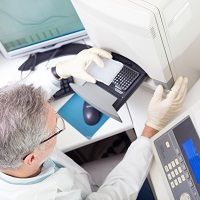Novel Monoclonal Antibody Shows Promising Results for Treating Plaque Psoriasis
A new drug with the potential to join the existing class of monoclonal antibodies (mAbs) for plaque psoriasis has shown promising results in a Phase II study.

A new drug with the potential to join the existing class of monoclonal antibodies (mAbs) for plaque psoriasis has shown promising results in a Phase II study.
According to study results published in the Journal of the American Academy of Dermatology (JAAD), itolizumab is a humanized mAb to CD6, a T cell co-stimulator that “may play a role in cell proliferation, adhesion, differentiation, and survival processes,” one of the study’s authors notes. “The CD6 co-stimulatory pathway contributes to the Th1 activation and differentiation of human T cells, promoting a preferentially pro-inflammatory response.” The role of T cells in the pathogenesis of psoriasis has been described with increasingly frequency in medical literature.
For the study, a group of researchers from India and Cuba randomized patients 2:2:1 to three study arms. In Arm A (Weeks 0 to 12), patients received itolizumab at a dose of 0.4 mg/kg/wk for four weeks, followed by a dose of 1.6 mg/kg every two weeks (the induction regimen). In Arm B, patients were treated with itolizumab 1.6 mg/kg every two weeks. Patients in Arm C were the placebo group. During Weeks 12 to 28, Arms A and B received 1.6 mg/kg itolizumab every four weeks until Week 24. The placebo group (Arm C) received a dose of itolizumab 1.6 mg/kg every two weeks until Week 24. From Weeks 28 to 52, depending on Psoriasis Area Severity Index (PASI) score, arms A and B were re-randomized to itolizumab or placebo, switched to open-label itolizumab, or withdrawn, if PASI score was less than 50. Arm C progressed to maintenance itolizumab therapy.
Study outcomes included improvement in clinical markers, indicated by at least a 75% increase in PASI (PASI75) and Physician Global Assessment (PGA) scores, and quality of life via assessment with the Dermatology Life Quality Index (DLQI). Median time to achieve PASI75 was 18 weeks in Arm B, 20 weeks in Arm A, and 24 weeks in Arm C. At Week 12, according to the study results in JAAD, mean change from baseline PGA was “significantly greater than placebo (A vs C, P<.0001; B vs C, P=.0002.” DLQI scores improved across all study arms.
“The PASI50 response at week 28 was in line with most of the other biologics available — around 80%,” explains one study author. “PASI75 was lower, at around 45%-46%. However, a majority of the partial responders turned PASI75 responders after 28 weeks with continued dosing. The most exciting part of the study was [that] response was sustained for a very long time, even after stopping therapy in the randomized withdrawal phase. Median time to loss of PASI75 was around 28 weeks after stopping therapy.”
All biologic agents currently on the market for psoriasis “have to be given in maintenance dose even after complete response to avoid relapse — as frequent as every 14 days,” the author continues, adding that, if the time to relapse observed in this study holds, “We are looking at a biologic treatment which can have least frequent maintenance therapy if at all required.” The author also notes further studies are needed to confirm this finding.
The incidence of adverse events (AEs) over 52 weeks of treatment were similar across Arms A, B, and C (50%, 47.8%, and 53.5% overall, respectively). According to the study results in JAAD, over the length of the trial, there were an incidence of 352, 324, and 365 AEs per 100 person-years respectively for Arms A, B, and C. Common AEs included infusion-related reactions and pyrexia. Five serious AEs were reported in four patients in Arms A or B: exfoliative dermatitis, erythrodermic psoriasis, infusion-related reaction, adjustment disorder with anxiety, and bacterial arthritis. Seven AEs led to withdrawal from the study: lymph node tuberculosis, erythrodermic psoriasis, acute infusion-related reaction, delayed infusion-related reaction, exacerbation of psoriasis, neutropenia, and depressed mood.
In total, 35 patients were anti-drug antibody positive after treatment with itolizumab, although 20 were ADA-positive prior to the start of the study. The authors note that ADA positivity was not correlated clinically to loss of efficacy, as measured by PASI, or safety, such as infusion or injection-site reactions.
“Itolizumab is a safe biologic with a very low infection rate observed (as expected by the upstream mechanism of action) and a long median time to relapse,” one study author notes.
The JAAD study concludes: “Itolizumab has comparable efficacy to existing therapies, has excellent safety, and produces measurable improvements in quality of life.”